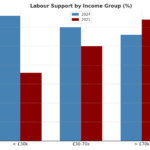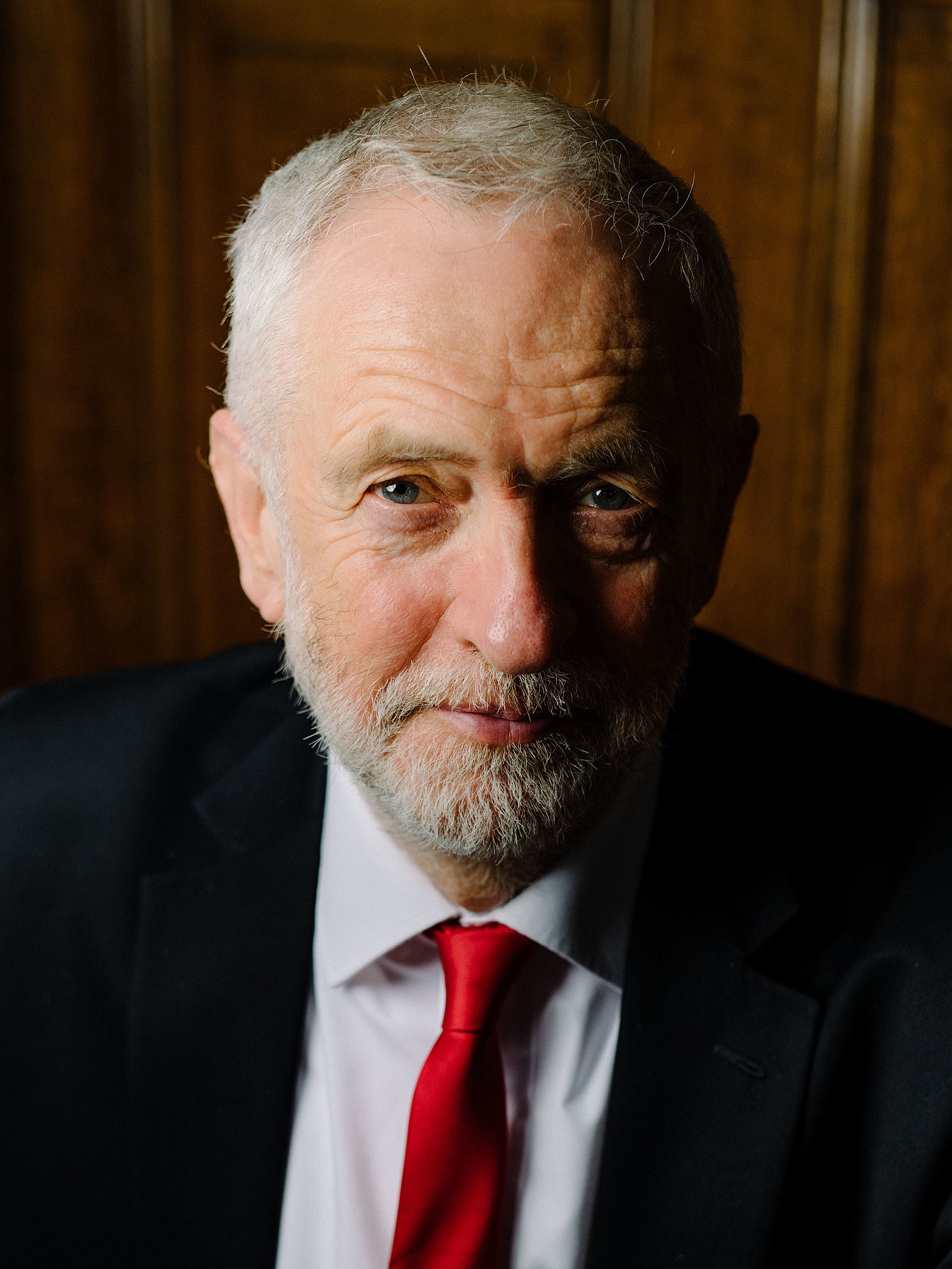British Working-Class Discontent: Farage, Reform UK, and the Rise of Populist Anger
BIRMINGHAM — In 2021, Reform UK was little more than a footnote. Its inaugural conference drew a few hundred activists to a function room in Manchester, far overshadowed by the Conservative Party gathering down the road. Nigel Farage, the perennial agitator of British politics, was not even in the room. The party was polling at three percent.
Four years later, the scene is unrecognizable. This weekend, Reform convenes in Birmingham with 5,500 tickets sold and a swarm of political lobbyists in attendance. For five straight months the party has polled ahead of both Labour and the Conservatives, averaging 30–31% — a feat no party outside the duopoly has achieved in modern British history. Polling models suggest that if an election were held today, Reform could emerge as the largest party in Parliament.
The question hanging over Britain: is this a fleeting protest, or the birth of a new political order?
⸻The New Protest Vote — or More?
To many analysts, Reform’s surge is not merely the product of short-term discontent. John Curtice, professor of politics at Strathclyde University, argues it marks a realignment of the Brexit coalition. In 2019, three-quarters of Leave voters backed Boris Johnson. Today, half of that bloc has migrated to Farage, leaving the Conservatives stranded on historic lows.
Polling data paints a consistent picture. Ipsos finds nearly 70% of Britons expect the economy to worsen in the next year. A record 59% express dissatisfaction with the NHS. Immigration, long Britain’s most combustible issue, is viewed as “too high” by seven in ten voters — and by 97% of current Reform supporters.
• Confidence among Reform supporters:
– Immigration: 80%
– Economy: 57%
– NHS: 53%
• Farage outperforms Starmer and Badenoch among Reform’s base.
Source: Survation online poll of 2,002 adults, June 25–27, 2025. Margin of error ±2.4%.
Unlike earlier insurgencies — UKIP in 2015 or the SDP in 1983 — Reform’s support has endured for months. Farage’s personal approval remains higher than both Labour’s Keir Starmer and Conservative leader Kemi Badenoch. Among his supporters, 84% say they are satisfied with his leadership, far outstripping partisan loyalty to either of the two main parties.
⸻Economic Disillusionment
Behind the numbers lies a landscape of working-class discontent that has been building for decades. Stagnant wages, precarious jobs, and a housing market out of reach have created a pervasive sense of betrayal. Much of this sentiment is now expressed in real time on X (formerly Twitter).
“Hard work doesn’t mean anything anymore. You do 40+ hours and still can’t cover rent and energy. Wages frozen, food up, council tax up. Don’t tell me this is ‘just a rough patch’ — it’s a broken system.”— User on X
“British industries have been left to rot. We were told ‘global Britain’ was the future. What we got was shuttered factories, agency work, and zero leverage. Who exactly is this economy working for?”— User on X
Since the 2008 financial crisis, real wages have barely risen. Fifteen years of cuts to local councils, schools, and hospitals have left visible scars. Five million adults now live with overlapping financial, housing, and health insecurities. For many, Reform’s blunt message — Britain is broken, immigration is too high, elites have failed — is not ideology but lived experience.
⸻Housing and Public Services in Crisis
The housing crisis looms large. Wage-to-price ratios are at historic highs, putting ownership beyond reach for younger workers. Social housing stock has dwindled, while private rents spiral.
“We pay more in rent than our parents did on their mortgage. Saving is a joke. Every month starts at zero after bills. Homeownership is a fantasy unless you’ve got family money.”— User on X
“Second homes everywhere, empty most of the year. Locals priced out, key workers commuting miles. Then we’re told it’s ‘market forces’. Whose market?”— User on X
The NHS — once the pride of postwar Britain — is described as “crumbling.” Dissatisfaction is at record levels, while local services falter. Posts echo the feeling that Britain’s infrastructure is “broken and decaying.”
⸻Immigration, Identity, and Betrayal
Immigration is the flashpoint that transforms economic grievance into political revolt. Reform supporters overwhelmingly view migration as undermining British culture and straining services. Among 2016 Leave voters, 53% now back Reform; among Remainers, just 11%.
“It’s not ‘hate’ to say services are overwhelmed. GP waits, A&E waits, school places. We never got a say on the numbers, just lectures from people who don’t queue for anything.”— User on X
“We voted for control. Instead we got open borders and closed factories. If that’s ‘progress’, explain why towns like mine are poorer and more divided than ten years ago.”— User on X
This cleavage is not merely about numbers but about identity politics. Reform voters are markedly more skeptical of equalities policies and more doubtful of net-zero timelines than the population at large.
⸻The Farage Factor
Reform’s appeal is inseparable from Farage himself. Polling shows that while the party’s supporters distrust Starmer and Badenoch alike, they reserve confidence for Farage on three issues: immigration, the economy, and the NHS.
– Farage: 30% approve, 40% disapprove (net −10)
– Starmer: 21% approve
– Badenoch: 16% approve
Among Reform supporters: 84% satisfied with Farage’s leadership.
Yet this is also Reform’s greatest weakness. Strip away Farage, and the party risks collapse. His personal negatives remain high among the broader electorate, limiting his ceiling. And under Britain’s first-past-the-post system, Reform’s dispersed support may struggle to convert into seats. In 2015, UKIP secured 13% of the national vote but just one MP.
Still, Reform strategists argue that the scale of disaffection — particularly among ex-Conservative voters — makes this different. Local Tory associations are weakened, activists demoralised, and donors hedging bets. In such an environment, Reform’s insurgency could absorb the Conservative machine rather than merely challenge it.
⸻Fragmentation and the Battle Ahead
The party’s rise has also been enabled by fragmentation. Labour bleeds support to the Liberal Democrats and Greens. Conservatives hemorrhage voters to Reform. In such a divided landscape, even 31% of the vote can look decisive.
But if Labour consolidates the liberal-left, or Conservatives claw back Brexit loyalists, Reform could be squeezed. To govern, Farage would need to broaden his appeal beyond his socially conservative niche. At present, polls suggest voters beyond Reform’s base still trust Labour more on the economy — an obstacle for any would-be prime minister.
⸻A Country at a Crossroads
The discontent driving Reform UK is real and profound. It is economic, cultural, and political all at once. From stagnant wages to immigration anxieties, from decaying hospitals to housing shortages, millions of Britons feel abandoned by the old order. On X, the refrain is simple and devastating: “Britain is broken.”
Farage has turned that despair into political capital, harnessing anger into momentum. Whether it endures depends on factors beyond his control: the resilience of Labour, the recovery of Conservatives, and the volatility of a fragmented electorate.
For now, Reform UK stands as a mirror of Britain’s malaise — a movement born of frustration, sustained by Farage’s charisma, and fuelled by the voices of a working class demanding systemic change.



